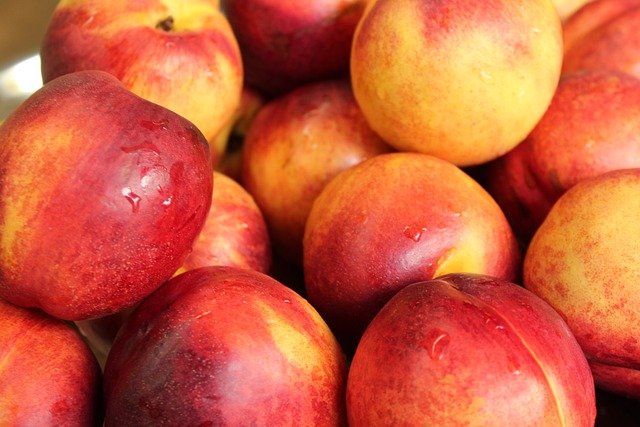The Australian Horticulture Exporter’s and Importers’ Association has welcomed the Federal Coalition Government’s multi-million-dollar commitment to growing horticulture exports, provided in this month’s budget.
A total of $29.4 million worth of measures were announced, to target agricultural sectors with high export growth potential. Exact details are still vague, given the Federal Government went into caretaker mode soon after the budget was released, due to the pending election on May 18. The AHEIA says this is the first time it can remember focus being placed on horticulture exports.
“It’s great to see horticulture is taking the spotlight on the agriculture trade agenda because it is an incredibly positive story for the Australian economy,” CEO Dominic Jenkin said. “It hasn’t attracted as much attention (in the past) so it was great to see that as the centrepiece of agriculture trade announcements. Furthermore, the focus on gaining additional market access and improving the conditions for trade into our major markets. However, there is precious little detail in the statement, so time will tell where the investments go, and the quality of those investments.”
One of the major commitments was to provide $11.4 million over four years to break through the technical and scientific trade barriers so Australian fruit and vegetables can get market access into more countries. The AHEIA welcomes any way to streamline that process.
“Horticultural trade is often limited by sanitary and phytosanitary measures,” Mr Jenkin said. “This can occur as either delays in the assessment and establishment of appropriate measures, or the imposition of impractical measures. Investment in improving horticultural market access and trade should promote greater transparency and understanding in the application of phytosanitary measures. This would include timely approval of market access applications and to promptly and transparently conduct risk assessments when required. Attention should be paid to improving the technical dialogue with our trading partners to ensure the most practicable solutions are selected and implemented.”
He added that the problem with that is that is that while the process is intended to be purely scientific, it can often become political, in terms of “the way that it is drafted, the timeliness, and whom they engage to draft it”.
“Market access is an inherently political process, and trade in every sense is reciprocal,” he said. “We will need to have a hard look at access and conditions that we impose upon exporters to our market, and our operational practices to support that trade. So, I think it is relational, so I think we need to be spending money to improve the relationship with our most important trading partners. We have been challenged by our broader government perspectives, in terms of our relationships with our more important trading partners. It’s important that we move to improve those, and show real value to our trading partners, show we care about what they are interested in and compromise to find mutual benefits, rather than engage in confrontational approaches.”
Mr Jenkin would also like to see a greater focus on improving relationships with trading partners, which can sometimes involve delicate political negotiations.
“Relationships are rarely maintained through the pragmatic argument of facts, but rather deep understanding,” he said. “If we know only our own needs and we ignore the needs of our trading partners we cannot expect relationships to prosper. We must look deeply in order to identify and understand the needs, aspirations and adversities they encounter. This is the groundwork required for relationships to prosper.”
The Federal Government stated that only 18 per cent of horticulture production was exported, meaning that there is huge potential for growth. The industry is currently taking a diverse approach, supplying to around 30 countries. However, one of the most important areas for growth in recent years has of course been China.
The AHEIA says one of the eventual key winners of this investment will be regional communities.
“At the end of the day, it is all flowing back to the farms and our regional communities,” Mr Jenkin said. “In horticulture, up to 50 per cent of the cost of production is the labour component. Whilst it is a huge problem in terms of accessing this labour, it is also a positive for the communities that support those populations. It is extremely positive to see the investment in this area, and we would certainly welcome engagement with any government around the world in improving horticulture trade. Trade also means importing products as well, and we see maintaining that balance is vital in maintaining our status in our most important markets.”
For more information
Dominic Jenkin
Australian Horticulture Exporter’s and Importers’ Association
Phone: +61 423 394 476
admin@horticulturetrade.com.au
www.horticulturetrade.com.au
Publication date: 4/17/2019
Author: matthew@freshplaza.com
© FreshPlaza.com
Related News & Updates
Become a Member
Join AHT
We’re the peak industry body for Australian Horticulture Trade. Joining AHT helps us advocate for you & the greater good of the industry.
Benefits OF joining
- Representing you, monitoring developments and potential threats to imports & exports
- We work on your behalf on solutions & opportunities to facilitate and maintain trade
- Be kept up to date with important issues affecting horticultural imports & exports


